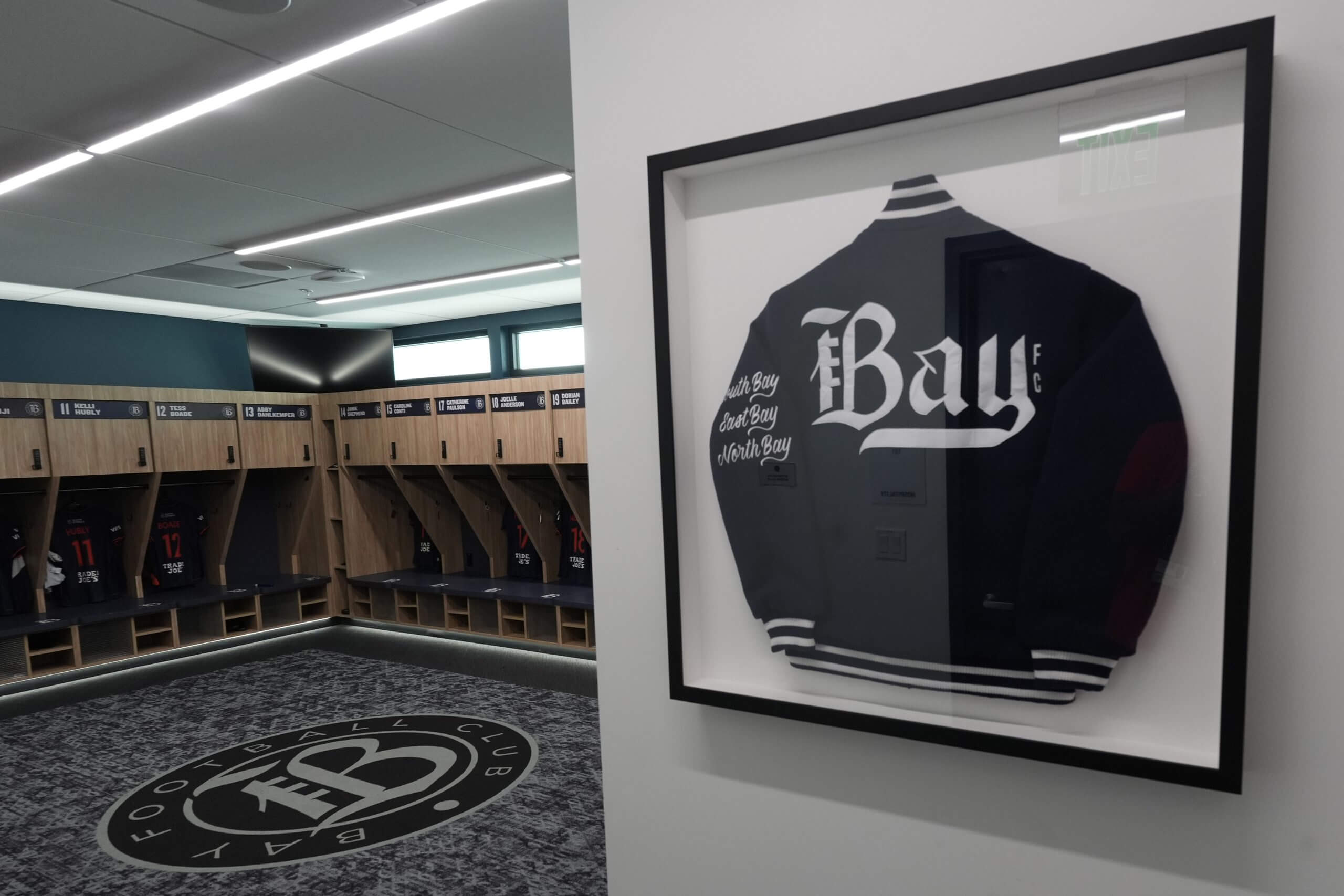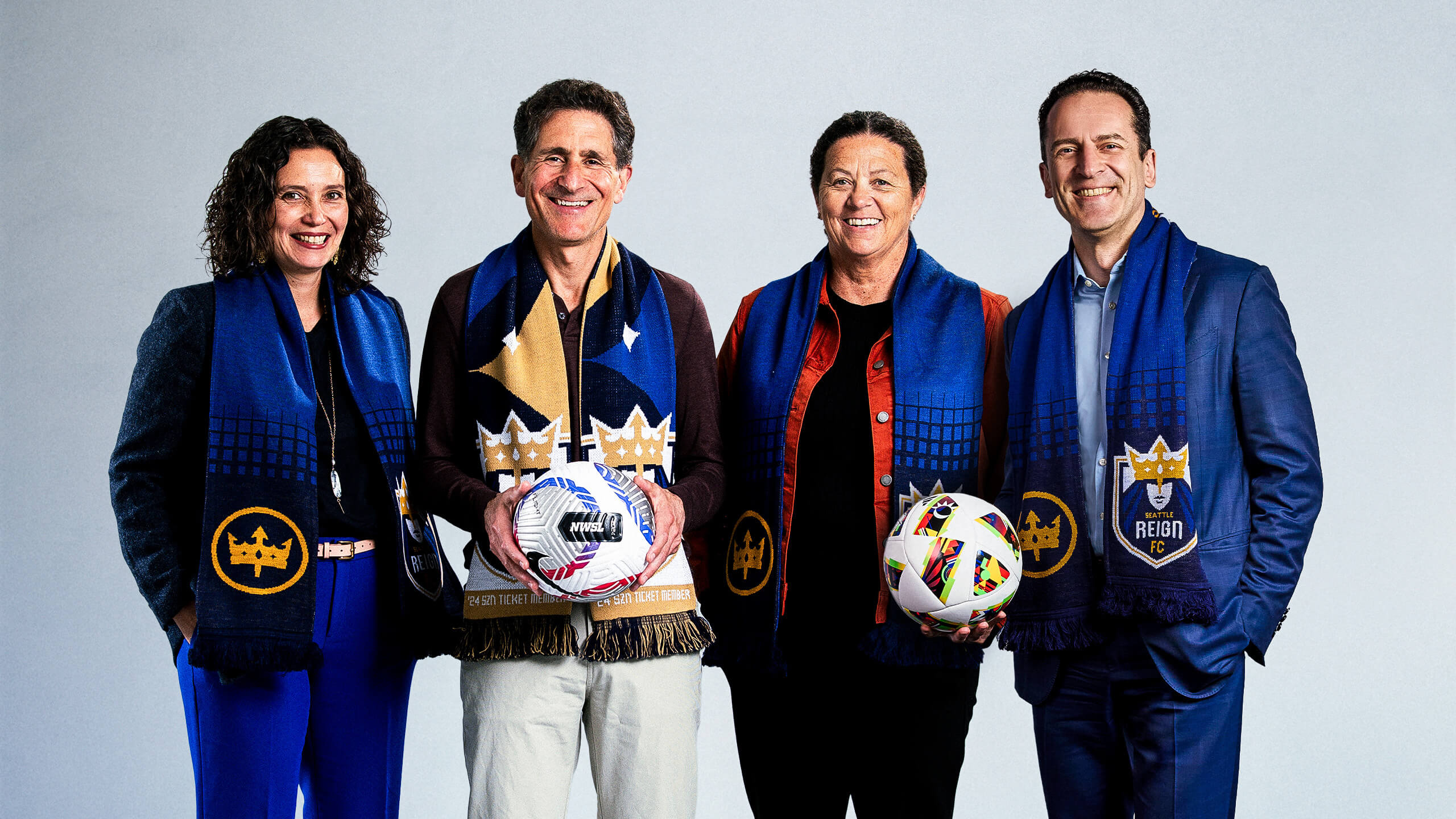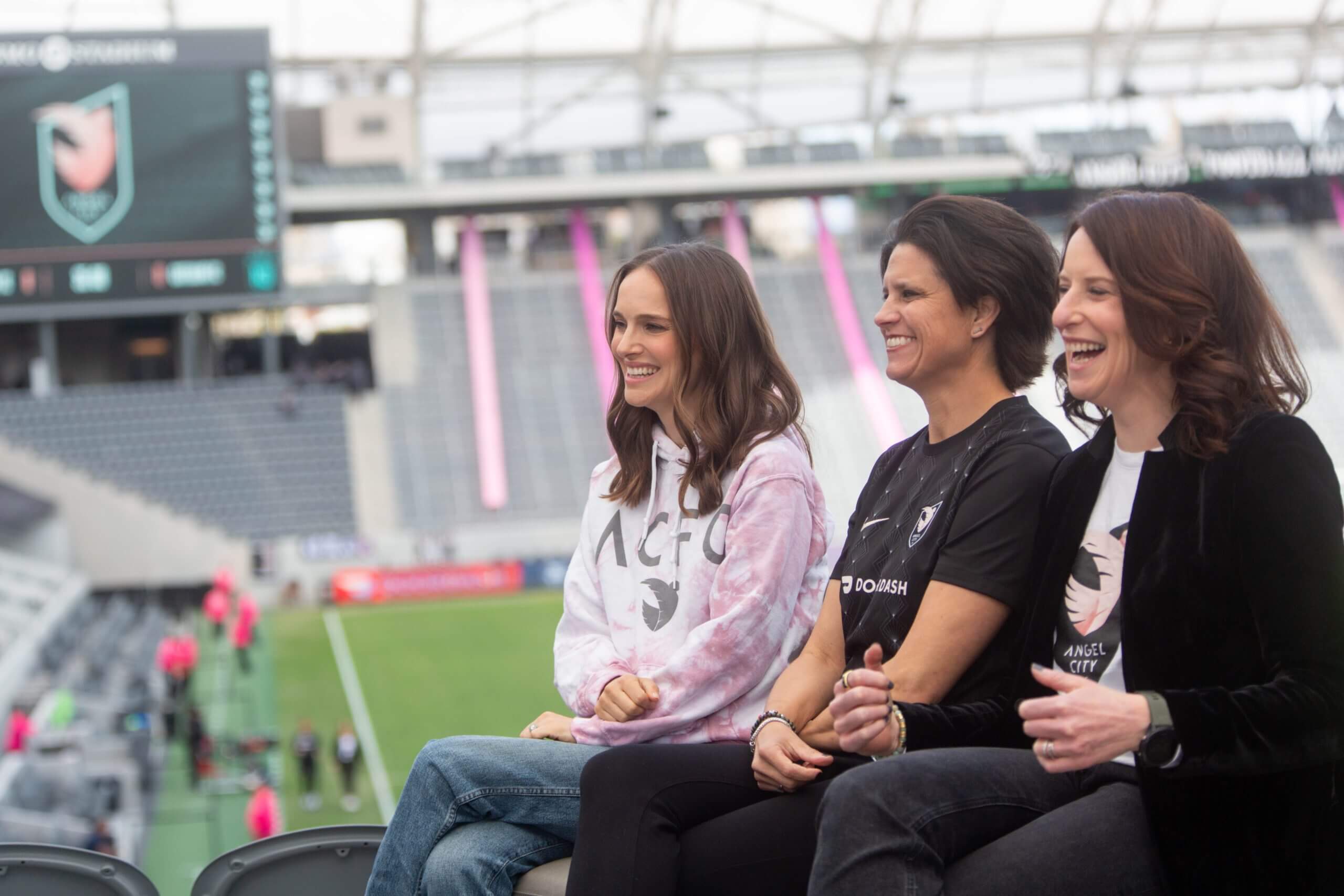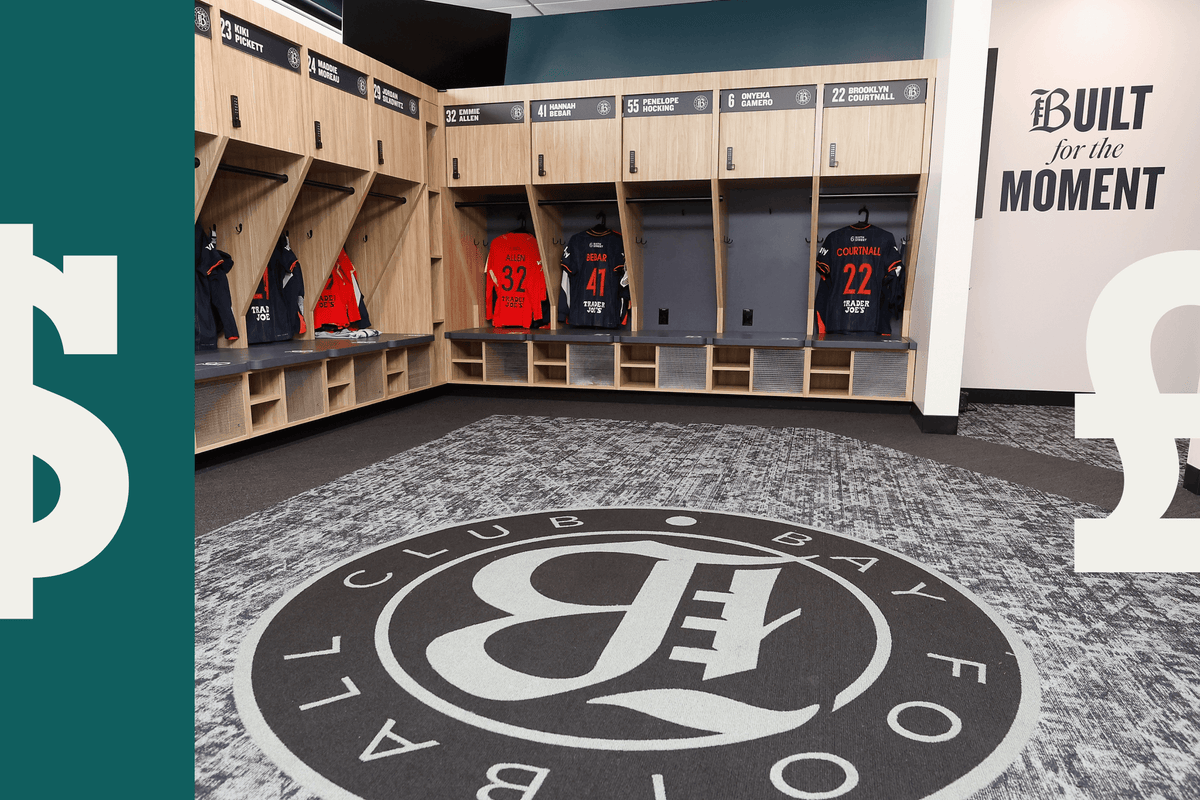When Bay FC parted ways with its first CEO, Brady Stewart, the news hardly made a splash. Leadership change happens regularly, especially in the National Women’s Soccer League (NWSL). However, it was the next line of the announcement that caught my attention.
The team, which was established in 2023 with Sixth Street as its controlling owner, had appointed a member of the private equity firm as the interim president.
Moving Russell Wolff, Sixth Street’s head of sports, media and entertainment operations, into the role means that one of the world’s most powerful equity firms has a direct hand in running the NWSL club.
When head coach Albertin Montoya—who had previously been found to have not violated NWSL’s policy against toxic work environments—announced he was stepping down at the end of the year, Sixth Street again stepped in.
Kay Cossington joined the firm as head of global women’s soccer strategy earlier this year and is now the CEO of Bay Collective, its new multi-club platform. She was put in charge of Bay’s sporting operations in September and tasked with finding Montoya’s replacement. A former architect of England’s 2022 European Championship-winning Lionesses, Cossington is in charge of steering Bay’s future and Sixth Street’s ambitions in women’s soccer.
The moves are hardly surprising if you have been paying attention to the NWSL’s rapid growth over the past three years and its recent overhaul of private equity investment rules.
Unlike the NBA, MLS, MLB, or NHL, which have cautiously let private equity nibble around the edges with small, passive stakes, the NWSL changed its rules in 2024 to allow private equity firms to take majority control of teams. NWSL commissioner Jessica Berman backed the move in a 2024 CNBC interview, saying private equity was a way to increase the league’s value.
It was a radical departure from the old-guard model and one the league saw as key to fueling its next growth spurt. They were right.
As of 2025, including two new franchises joining the league next year, at least eight NWSL teams have institutional investors.
Private equity (PE) investments are a form of institutional investment where the firm typically pools capital from heavyweight investors like pension funds and ultra-wealthy individuals, then uses that money to take significant stakes in businesses. Once in, they roll up their sleeves, shake up operations (including a reputation for budget-slashing and associated job cuts), fuel growth (hopefully), and aim to boost the company’s value over a period of time (three to seven years) before cashing out for a profit.
Sixth Street was the first PE firm to jump fully in after the rule change, paying a record $53 million to launch Bay FC, the league’s 14th franchise.
For Sixth Street, which invested in Real Madrid, San Antonio Spurs and most recently the Boston Celtics and the New England Patriots, Bay FC wasn’t just another team purchase; it was a statement that the money now backing women’s soccer would not sit quietly in the corner.

Sixth Street was the first private equity to buy controlling stake of an NWSL team with Bay FC (Thearon W. Henderson / NWSL via Getty Images)
CEO Alan Waxman, who represents Bay FC on the NWSL board of governors, made their intentions very clear at the time. They were in for the long haul.
“We’re witnessing a typical pattern for growth companies at the beginning of an inflection point,” Waxman said in a LinkedIn post at the time of the announcement. “All you have to believe is that economic reality eventually catches up to the data. And as it does, similar to the global men’s soccer franchises, we will start to see professional women’s teams become national and global consumer brands.”
When NWSL loosened the rules around private equity, it made sure there were guardrails. A single PE fund can hold passive stakes (i.e., no decision-making power) in up to three teams, and those stakes must be at least five percent and no more than 20 percent of a club’s equity, according to NWSL’s policy reviewed by The Athletic. No more than 30 percent of any team can be owned by PE firms in total.
That means up to six firms can hold minority stakes in a team, but funds investing in multiple teams must manage at least $100 million in capital. The league policy requires funds to have the legal authority to hold their investments for a period of at least five years from the date the investment closes. No NWSL owner may have an investment in the fund, excluding passive investments of five percent or less of the fund’s capital.
However, the league made one big exception. If a fund invests in only one team, it can own up to 100 percent and therefore be active in decision-making. To secure long-term commitment, the NWSL requires that investment to come from an evergreen fund with no set end date, as in Sixth Street’s case, which is rare in private equity.
Most traditional PE funds have a fixed expiration period, typically lasting 10 to 12 years. Unlike evergreen or open-ended funds, which have an indefinite life, these standard closed-ended funds are structured to invest, manage and exit their assets within a predetermined timeframe. Despite opening the gates to private equity, the NWSL has drawn some lines. Sovereign wealth funds, state-run investment vehicles and pension funds are off the table, for now.
“The league is not looking for traders. They’re not looking for people to come in and make a quick buck. They’re looking for somebody to invest in the long-term success of the sport in America,” said Alexander Popov, the head of private credit opportunities at Carlyle, one of the most influential private equity firms in the world.
Carlyle invested in the Seattle Reign in 2024 as part of a joint venture with the Seattle Sounders FC ownership to purchase the team from OL Groupe, previously the Eagle Football Group, a holding company that is primarily known for its ownership of eight-time UEFA Women’s Champions League winners Olympique Lyonnais.

Alexander Popov (right) is the head of private credit opportunities at Carlyle and the alternative representative for the Seattle Reign on the NWSL board of governors (Seattle Reign)
It is unclear whether Carlyle holds a controlling stake in the club, as neither Carlyle nor the NWSL commented on the extent of its ownership. However, once the deal was closed, Popov came on as the alternate governor of the Reign and still holds this position.
With many teams around the league exploring improvements to training facilities and building dedicated or semi-dedicated stadiums, what the NWSL needs now for its long-term growth is institutional capital, Popov said.
“People need to come into this league with the focus on the value that’s created over the next 5-10 years, not necessarily the value that’s tomorrow,” he said.
Despite what Sixth Street and Carlyle say — that they’re in this for the long haul — private equity isn’t exactly known for its patience.
The model is simple: buy significant stakes in companies you can’t find on the stock market (or take public ones private), supercharge their growth and sell them for a profit, as three American funds, Colony Capital, Butler Capital and Morgan Stanley did back in 2006.
These three funds, bought the majority stake of Paris Saint-Germain from French media company Canal+ for €41 million ($47.86 million) and five years later, sold the team to Qatar Sports Investments (QSI) for approximately €100 million ($116.7 million). Not bad for a team, which at the time did not show potential on the field. The French team, which won the UEFA men’s Champions League last season, is now worth $4.26 billion, according to Sportico’s May 2025 ranking.)
“What (private equity) does best as an industry, whether it’s in sports, media and entertainment or other industries, where we and our investors win, is when we invest in good, transformational, transitional capital for growth in that industry,” Popov explained. “In the past, by and large, this is not something that private equity has done in the world of sports, and that is really changing. We’re bringing the same alignment of interest to the world of sport.”
The NWSL is just 13 years old, but it’s outpacing every other major North American sports league when it comes to franchise valuations. With average team values surging 57 percent year-over-year by the end of 2024 and some clubs skyrocketing more than 140 percent in the same stretch, it’s no wonder investors and their billions are now circling the league. That includes more private equity.
“The NWSL is incredibly attractive as an investment,” Matthew Eisler, who leads Hogan Lovells’ Global Sports Practice Group, told The Athletic.
Eisler led the control acquisition of the San Diego Wave for the Levine Leichtman family and Rob Cohen’s winning bid to bring an NWSL expansion team to Denver. In both transactions, he helped the controlling owners form their ownership consortiums, bringing in co-investment, including from private equity sources in both deals.
“The entry point is far more accessible. One percent of an NFL team might cost $70 million. Whereas $70 million just a few years ago could buy an NWSL franchise, today, you could buy 30 percent of the most valuable team with that money,” Eisler said.

Angel City FC investor Kara Nortman’s Monarch Collective has minority investments in three NWSL teams, including ACFC, San Diego Wave and Boston Legacy. She first joined ACFC alongside actress Natalie Portman and co-founder Julie Uhrman (Allison Zaucha / Bloomberg via Getty Images)
The list of private equity investors in the league is even longer.
Angel City FC investor Kara Nortman’s Monarch Collective has minority investments in three NWSL teams, including ACFC, San Diego Wave and Boston Legacy.
The Dallas-based Arctos Partners, a multi-billion-dollar fund that invests across a variety of major sports leagues, including the Los Angeles Dodgers, Chicago Cubs, and Houston Astros in MLB, and the Golden State Warriors, Sacramento Kings, and Utah Jazz in the NBA, owns minority stakes in the Portland Thorns and Utah Royals.
Ariel Investments launched Project Level, a dedicated women’s sports fund and invested in the Denver franchise last February.
“The checks are smaller and the fundraising is more approachable,” Eisler said. “It’s why funds like Monarchs and Ariels can be so nimble; they don’t need to raise $3 billion to participate.”
With the new rolling bidding process, more investors will come in as new franchises roll into the league in the near future.
“A lot of investment in the NWSL is mission-driven. Investors believe in the future of women’s sports and want to back that belief with capital,” Eisler said. “They’re seeking returns, but they also want to help shape the league’s growth, bringing their expertise and resources to accelerate that growth while benefiting from it.
“These funds recognize that women’s sports are different from men’s, from the fan base to spending habits, and they see tremendous upside ahead.”

